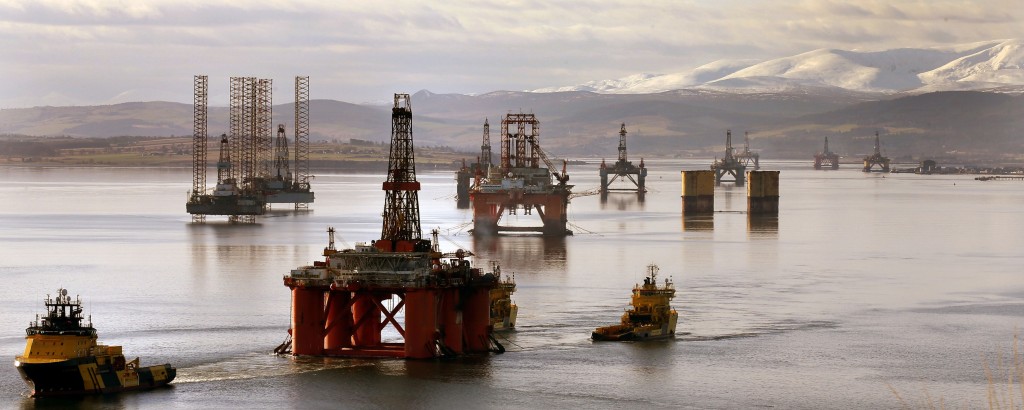
George Magnus on oil, China, and why politics will trump economics in 2016
George Magnus was one of the first people to explain what the heck happened back in 2008 when the global economy went a bit silly. With the first few months of this year also looking a bit shaky, we asked George what to expect in 2016.
The start to 2016 has seen a fair bit of economic turmoil already. What’s going on?
The press has been reporting a meltdown going on in stock markets, mainly down to economic problems in China and the collapsing oil price.
Underneath it's more complex, not least because for most people, a sharp drop in energy prices is normally seen as good news (cheaper oil, happy customers). So my view is a) stock prices were inflated before, boosted by b) we're seeing the dark side of an unwinding of a giant oil and commodities bubble that's been building for a decade and c) economists are waking up to the fact that the way they've been thinking about China for so long - a glossy, ever-growing investment haven - is deeply flawed.
What’s going on with the price of oil? Is this a good or bad thing for the global economy?
This is what the Americans call a 'no-brainer'. Cheap oil is a transfer of real income from producers to consumers. Here in the UK, for example, the fall in petrol prices alone, allowing for the number of miles we drive, has given us the equivalent of a £7bn tax cut. It also lowers the cost structure for non-energy companies, leading to higher profits and capital spending.
The trouble at the moment is that no-one's spending any money in international financial markets. Why? Because consumers are barely spending any of the money they're saving from the low oil price, perhaps because they're cautious, perhaps because there's been so much debt around. Producers who would otherwise put money into financial markets aren't spending much either, being low on funds. That's causing financial instability.
China seems to be in the news a lot recently. Why is it so important in economic terms?
Simply put, China is the world's second largest economy and exports more than any other nation. Many countries and companies have spent more than 15 years increasing their involvement with Chinese companies, consumers and markets. That's why the realization that all’s not well is important.
The effects of China's problems are already evident. The anti-corruption campaign is having a drag effect on the economy and on decision-making. The unsteady housing market is tearing away at commodity prices and producers. Conflicted and confused policies have undermined confidence in the yuan and the Chinese stock market. And a highly indebted economy where growth is slowing sharply is a recipe for trouble.
Are we still in the shadow of the last financial crisis?
Economically, I think that's absolutely true. The crisis revealed, and in many ways worsened, a huge build-up in debt. So the economies in the West are fundamentally weaker than they were, and less responsive to the things we like to think they should be responsive to - like cheap oil, and low interest rates.
Financially though, even though our banks are still financing quite a lot of their work on debt and will always have vulnerabilities (for example, now to the wilting energy and materials sector), I'd argue that banks are not as central to the economy now as they were in 2007-08. As a result, if there's going to be a crisis, it probably won't look the same.
Have the banks learnt anything from 2008? Are we safe from a second crisis?
A number of things have changed. The regulatory environment has been tightened quite a lot. Banks can't run so-called 'proprietary trading' books, and reporting, supervision and compliance conditions are much tougher. Balance sheets are looking less problematic than they used to, and banks have much more money, or capital, in their , easier access to finance, and more stable profits.
But - there's always a but - while these factors may be comforting as far as individual banks are concerned, we can never know if the ring-fences and controls are enough to prevent a systemic crisis, that is a shock that torpedoes the entire sector. I don't think it's a highly likely outcome even given the ubiquitous nature of say, energy lending, or the monies that have surged into emerging markets, and so called 'junk' bonds with low credit ratings. But what's going on now will certainly test the system.
You’ve written recently that 2016 will be the year "politics will trump economics". What did you mean by that?
I meant simply that economic policies and outcomes were increasingly likely to be determined by political (and social) tastes and preferences.
Take immigration and Europe for example. A lot of economists paint a rosy view about the economic impact of net immigration. I did so myself in my book The Age of Ageing when discussing coping mechanisms for the economics of ageing societies. But the reality is that open-door immigration is, at least for now, a fantasy.
The same goes for the coming UK referendum on whether to remain a part of the the European Union. Countless economic arguments will be made for and against membership, most of which will be beyond the comprehension of most voters. The decision will be made on political grounds, as indeed was the decision to have a referendum in the first place. In other words, the politics of economic decisions will hold sway.
Main image: © Andrew Milligan/PA Wire/Press Association Images



